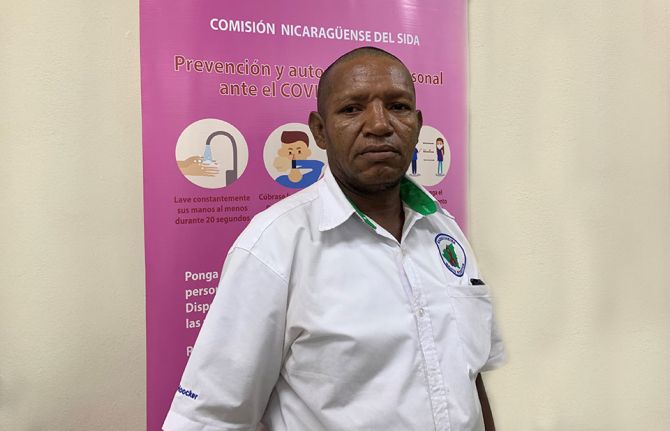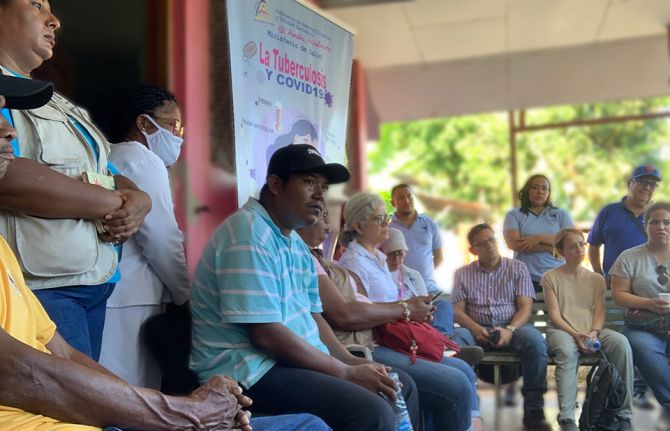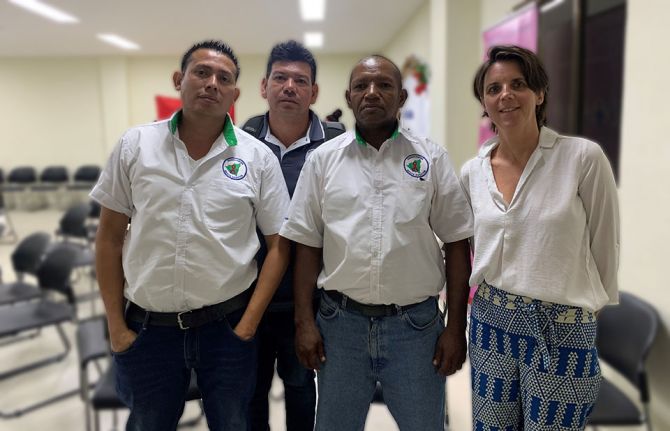



Feature Story
How working with providers of natural and holistic medicine for complementary self-care techniques is helping Nicaragua increase adherence to HIV medicines and reduce new infections
29 May 2023
29 May 2023 29 May 2023Right after taking his HIV treatment each morning, Antonio Hooker prepares a kit of fresh herbs and fruits he has bought at the local market to cross the Bilwa area, a village on the northern Caribbean coast of Nicaragua, as a health promoter for the Association of People Living with HIV (ASONVIHSIDA). He strengthens HIV prevention knowledge among vulnerable groups in his indigenous Miskitu community. He also teaches community leaders and people living with HIV or other health problems to use the power of natural medicine in conjunction with antiretroviral medicines to improve their immune systems.
Antonio is one of the dozens of volunteers and community promoters who have been certified by the Nicaraguan AIDS Commission, the Ministry of Health and the Institute of Natural Medicine and Complementary Therapies through training in "Self-Care in Sexual Reproductive Health and HIV from the Perspective of Natural Medicine".
Since his diagnosis 17 years ago, Antonio has learned the importance of self-care. He now shares his knowledge and training experiences with family members and others living with HIV in remote communities along the Nicaraguan coast.
"The course opened my mind to the importance of natural medicine and traditional practices, such as massage and meditative activities," says the health promoter. "We know these techniques work because we see improvement in our health while seeing progress in adherence to HIV treatment, as well as strengthening social, community networks and relationships within the families of people living with HIV."
The course "Self-care in Sexual Reproductive Health and HIV from the Perspective of Natural and Holistic Medicine" aims to provide guidelines on self-care for people living with HIV or similar conditions and their families. Through the appropriate use of medicinal plants, reflexology (a system of massage used to relieve tension and treat illness, based on the theory that there are reflex points in the feet, hands and head linked to each part of the body) and complementary therapies, such as the practice of the Chinese martial art and system of callisthenics well known as Tai Chi Chuan, which consists in sequences of slow controlled movements.
"The objective is to build skills and abilities among people living with HIV, volunteers and active community members to develop a comprehensive approach to sexual and reproductive health, sexually transmitted infections (STIs) and HIV," explains Dr Enrique Beteta, Nicaragua's Deputy Minister of Health. "It also allows people to access information and linkage to health services at the local level to take care of their health and the well-being of those around them."
The services harnessing natural medicine are complementary, not alternative, to HIV medicines. Indeed, the programmes have helped increase uptake of and adherence to HIV medicines.
Nicaragua’s comprehensive approach and partnership with communities has helped it to advance progress on treatment and prevention. Since 2010, Nicaragua has experienced a 20% decrease in new HIV infections, while in Latin America, new infections have increased by 5% in the same period. About 11 000 people live with HIV in the country, and 90% have been tested and know their positive diagnosis, above regional (82%) and global (85%) rates.
The course offers 84 hours of theoretical and practical training, a quarter of which is focused on Sexual and Reproductive Health and HIV modules. The certification also focuses on putting people at the centre, not only as beneficiaries but also as key protagonists, participating, exercising and demanding access to their rights for equality and equity.
"The course also aims to identify in people the autonomy to make decisions, as transformative agents, in a framework of respect, solidarity and social justice," explains Marie Engel, Director of the UNAIDS Multi-country Office for Guatemala, Honduras and Nicaragua. "Working to eliminate stigma and discrimination is also an important outcome of this initiative."
Watch
Region/country
Related
 Multisectoral resilience to funding cuts in Guatemala
Multisectoral resilience to funding cuts in Guatemala

22 December 2025


